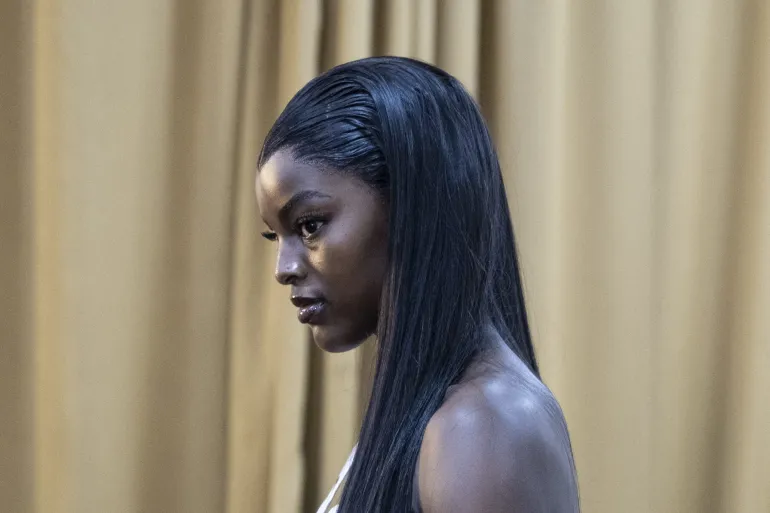Johannesburg, South Africa – Anita Odunyao Solarin, a 21-year-old Nigerian who has spent her entire life in South Africa, finds it safer not to disclose her West African roots.
She does her best to assimilate with her peers and rarely volunteers her origins. This, she says, shields her from persistent bullying – a phenomenon she’s faced since childhood after moving to South Africa as a baby.
Keep reading
list of 3 itemslist 1 of 3
Why South Africans and Nigerians are fighting online
list 2 of 3
South Africa’s Operation Dudula vigilantes usher in new wave of xenophobia
list 3 of 3
As South Africa votes, Zimbabwean migrants, smugglers anxious about future
end of list
“I try not to show where I am from or look Nigerian. I hide my identity socially,” Solarin told Al Jazeera. “Because I’ve had to do it for so long, it has become normal.”
Her earliest memories of the tensions between South Africans and Nigerians date back to kindergarten, where she was mistreated by a peer.
“It was disheartening. A child, just four years old, hated me even though we were in the same school, looked the same, and did the same things,” Solarin shared.
“My school life was tough because I was bullied for my background. I was called names, especially the derogatory term, makwerekwere [a local slur for foreigner]. South Africans have this idea that if you’re not one of them, you don’t deserve to be here,” she added, her frustration still palpable.
Advertisement
Sign up for Al Jazeera
Weekly Newsletter
The latest news from around the world. Timely. Accurate. Fair.Subscribe

By signing up, you agree to our Privacy Policy
protected by reCAPTCHA
Solarin was brought up in Pretoria, but she doesn’t feel like she belongs in South Africa. Even decades on, she says it’s still easier for her – and other young Nigerians – not to disclose their heritage.
“Not many Nigerian children here will say ‘I am Nigerian’ because they are scared of the backlash and the hate. It’s just not safe for them,” she said.
South Africa has a long history of simmering anti-foreigner sentiment, and social tensions directed at other Black Africans in the country have turned violent over the years.
However, it’s recent events that have deepened Solarin’s disappointment with South Africa when, last month, 23-year-old beauty queen Chidimma Adetshina faced such severe xenophobic harassment as a finalist in the Miss South Africa (Miss SA) pageant that she eventually exited the competition.

https://imasdk.googleapis.com/js/core/bridge3.667.0_en.html#goog_231427541Play Video
Video Duration 2 minutes 37 seconds2:37
- Now PlayingVideo Duration 02 minutes 37 seconds02:37
 Why South Africans and Nigerians are fighting online
Why South Africans and Nigerians are fighting online
Chidimma Adetshina debacle
Adetshina, who was born in Soweto, Johannesburg to two immigrant parents, proudly spoke of her Nigerian heritage during Miss SA, sparking outrage from South Africans on social media.
Advertisement
Many insisted she had no right to represent South Africa in the competition.
When the controversy around Adetshina began, Solarin said she raised the matter for discussion with some of her international relations professors at the University of Pretoria, but was largely ignored. Her peers, on the other hand, tried to justify their belief that Adetshina should be disqualified based on unfounded rumours that her father may have been linked to criminality.
“[Adetshina] was bullied online because her father was Nigerian. If it had been any other nationality, there wouldn’t have been a problem,” Solarin said. “People even said her father was a drug dealer. Where does that come from? It’s the assumption that all Nigerians are criminals – it’s annoying.”
For weeks, Adetshina endured trolling and abuse, with the online vitriol amplifying existing South African-Nigerian tensions that are fuelled by economic frustrations and stereotypes about foreigners.
South Africa suffers from widespread unemployment and sluggish economic growth. While the government does little to improve the situation, many find it easier to turn on migrant African communities, accusing them of taking jobs and increasing criminality. These tensions inevitably spill into social media debates, where xenophobic rhetoric soars.
